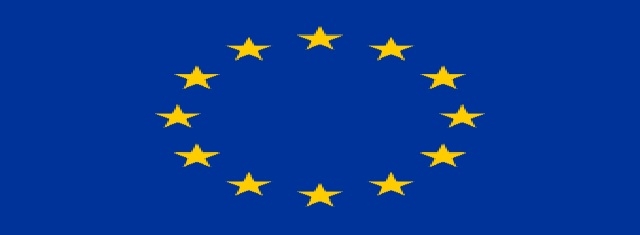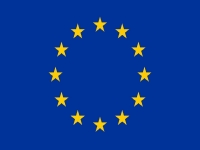Local
FRANCE HAS INVOKED EU TREATY COLLECTIVE DEFENSE ARTICLE REQUESTING MILITARY HELP
IS BEING USED FOR THE FIRST TIME

EUROPE FLAG
France has invoked an European Union Treaty Collective Defense Article requesting military help from its European partners in response to the terror attacks in Paris. Europea Union officials say the Mutual Defense article is being used for the first time.
Invoking article 42.7, a never used clause of the EU treaty triggering mutual defence among the 28 member states, Paris admitted it was struggling to cope with its foreign military commitments while beefing up security at home in the wake of the attacks, and asked the rest of Europe to come to its assistance.
Called the “˜mutual defense clause´, the Article 42.7 TEU reads that 'If a Member State is the victim of armed aggression on its territory, the other Member States shall have towards it an obligation of aid and assistance by all the means in their power, in accordance with Article 51 of the United Nations Charter. This shall not prejudice the specific character of the security and defense policy of certain Member States'
As a result of the train attacks in Spain in 2004, the EU inserted mutual defence measures into the Lisbon treaty similar to the Nato alliance´s article five, which obliges all member countries to come to the defence of one of their number if attacked.
As a result of the train attacks in Spain in 2004, the EU inserted mutual defence measures into the Lisbon treaty similar to the Nato alliance´s article five, which obliges all member countries to come to the defence of one of their number if attacked.
Speaking at a press conference in Brussels on Tuesday, French Defense Minister Jean-Yves Le Drian said all 28 EU member states unanimously accepted France's formal call for “aid and assistance“ under the EU treaty and he expected all to help quickly in various regions, Reuters reports.
The minister said France at this time does not have sufficient capabilities to wage several different military operations simultaneously, and expects full military support from its European partners.
The minister said France at this time does not have sufficient capabilities to wage several different military operations simultaneously, and expects full military support from its European partners.
The latter sentence means that the neutrality of countries such as Ireland, Austria, and Sweden cannot be impugned, while the emphasis on help from “member states“ means that the defence arrangements are agreed between national governments in the EU without the involvement of the institutions in Brussels such as the European commission or the European parliament. This leaves France free to strike deals with other governments without any interference from Brussels....But Paris also appeared to be asking its EU partners for some relief from its foreign military commitments, including participation in UN missions in Africa and Lebanon as well as its involvement in the bombing campaign against Islamic State in Syria and Iraq. (The Guradian)
The EU´s chief of diplomacy Federica Mogherini confirmed France will receive military assistance, but on bilateral tracks. The assistance is not to come from the EU as a whole within the so-called Common Security and Defense Policy, which is a European collective security system, according to RIA Novosti.
Paris did not choose to employ Article 5 of NATO´s Washington treaty, which says an attack on one is attack on all, although the EU´s mutual defense clause provides no common military infrastructure within the European Union itself.
Paris did not choose to employ Article 5 of NATO´s Washington treaty, which says an attack on one is attack on all, although the EU´s mutual defense clause provides no common military infrastructure within the European Union itself.
The principle of collective defence is at the very heart of NATO´s founding treaty. It remains a unique and enduring principle that binds its members together, committing them to protect each other and setting a spirit of solidarity within the Alliance. This principle is enshrined in Article 5 of the North Atlantic Treaty, which states that an attack on one Ally shall be considered an attack on all Allies. NATO invoked Article 5 of the Washington Treaty for the first time in its history following the 9/11 terrorist attacks against the United States. (NATO)
The principle of collective defence has also been raised in the context of Russia´s military aggression against Ukraine. Russia´s actions have raised justified concerns among its neighbours, including those who are NATO members. That is why NATO Foreign Ministers, on 1 April, directed Allied military authorities to develop extra measures to strengthen collective defence. (NATO)
Ruby BIRD
http://www.portfolio.uspa24.com/
Ruby BIRD
http://www.portfolio.uspa24.com/
Ruby Bird France Military Help Eu Treaty Collective Defense Article Uncharted Territory 28 Member States Struggling To Cope Foreign Commitments French Defence Minister Jean-yves Le Drian Attacks Assistance
Liability for this article lies with the author, who also holds the copyright. Editorial content from USPA may be quoted on other websites as long as the quote comprises no more than 5% of the entire text, is marked as such and the source is named (via hyperlink).






